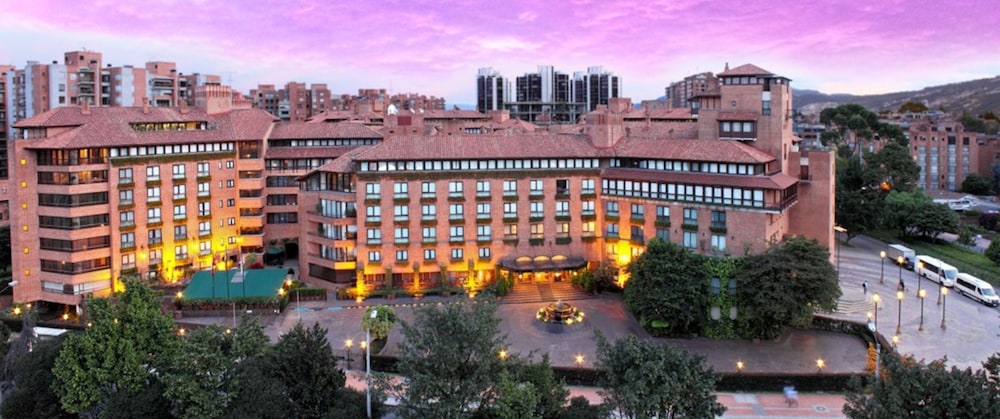So, a lot of people would like to know about the take-home messages from the recent
2nd International Blastocystis Conference in Bogotá. There were many, and I might develop one more post to make room for more.
The first - and most important - thing I'd like to emphasise is that
the community interested in Blastocystis is growing. And we're seeing a clearly
multidisciplinary approach to studying the parasite. I think that this is what we need. The initial ideas about having
Blastocystis-specific conference were developed by Funda Dogruman-Al and myself, and we both have a background in clinical microbiology. We have realised that in order to make sense of
Blastocystis in a clinical microbiology (and infectious disease) context, we need research input from bordering fields, such as biology (genomics, cell biology, etc.), veterinary medicine (host specificity and impact of
Blastocystis on animal health), gastroenterology (connection to microbiota and the extent of
Blastocystis being involved in functional and inflammatory bowel diseases), bioinformatics (processing NGS data such as those pertaining to the profiling of gut microbiota communities), and ecology (people who are used to study interactions between organisms). At the conference, I believe that all (or at least most) of these fields were represented.
I was also thrilled to realise that
many researchers have now adapted to the subtype terminology, - and even the allele terminology appears to be useful and pragmatic.
 |
| Status on the Blastocystis genome project. Slide by Andrew Roger. |
Andrew Roger highlighted that the genomes of Blastocystis are
more different than the genomes of human and mouse! Well-annotated
genomes are available for ST1, ST4, and ST7, while draft genomes are
available for subtypes 2, 3, 6, 8 and 9.
 |
| What use are genomes? Summary provided by Andrew Roger. |
Animal experimental modelling is possible. We know that rats can be colonised/infected by
Blastocystis ST1 strain from a human and shed cysts in stool for more than one year.
Blastocystis is one of the few parasites that are really easy to culture and easy to get by. If we can learn to i
nduce cysts in culture, these can be separated by sucrose gradient centrifugation or other methods and used for inoculation into volunteers, pigs, or rats, for instance. This can be used to study the impact of
Blastocystis on the host, including immune system and gut microbiota. Baseline microbiota profiling is necessary prior to inoculation to know about the background variation in study individuals.
In terms of
Blastocystis and gut microbiota: Since we published our conspicuous observations in 2015, many researchers have now corroborated our findings:
Blastocystis is typically linked to increased microbiota richness and diversity; - something, which is generally considered a benefit and which is linked not only to gut health, but also to leanness. Especially the negative association between
Blastocystis and
Bacteroides has been highlighted by many now. It will be very interesting to learn why this is so. It also seems that Blastocystis are more common in individuals with a gut microbiota dominated by strictly anaerobes rather than facultative aerobes.
Faecal microbiota transplantaion (FMT): The recommendation of excluding FMT donors based on the finding of
Blastocystis came up many times and was discussed in the context of the microbiota studies. It appear relevant to investigate further whether FMT donors should really be dismissed if they are
Blastocystis-positive.
 |
| Some of the take home messages from Raul Tito Tadeo's talk. |
In many animal groups,
Blastocystis is a very common finding. These include mostly omnivores or herbivores. On the contrary,
Blastocystis is very rare in strict carnivores, with no consistency in subtype distribution, indicating that these animals are not natural hosts of
Blastocystis.The Blastocystis incidentially found in these hosts might stem from the prey that they have eaten.
Finally, I wish to highlight that there are
excellent resources available from the pre-conference workshop, including an R script for microbiota analysis, and some tools for
Blastocystis genome annotation. Please visit my
previous blog post for links to these.
We cannot totally dismiss pathogenicity of Blastocystis; if existing, it may involve both strain- and host-specific factors.
And.... it's out: The time and venue for the
3rd International Blastocystis Conference will be Crete in 2021 (possibly June), with Eleni Gentekaki and Anastasios Tsaousis being involved in both the scientific and local organising committees... ! Please mark you calendars!
 |
| Andrew Roger, Raul Tito Tadeo, Kevin Tan and myself (taking the picture) enjoying some Club Colombia. |









